The Asian tiger mosquito has spread from its native south-east Asia to several European countries in the last 20 years.

Some scientists now believe that with rising temperatures the mosquito, which has caused epidemics of several tropical diseases, could soon reach the British Isles, with southern England becoming a hot-spot for the insect.
Roger Long, chairman of the Société Jersiaise’s entomology section, said that it was possible that the mosquito, which caries the potentially deadly yellow fever and dengue fever, could also reach Jersey.
He added that in the last decade there had already been a ‘marked increase’ in the number of southern continental butterflies, moths and birds arriving in the Island – and he attributes that to warmer temperatures.
‘The chances of the Asian tiger mosquito coming further north is quite high. But it’s not going to happen tomorrow, it’s going to be further in the
future.
‘In the medium future it needs looking at to see what is happening to its distribution on the continent to see if it is moving north. If it does start moving to the north of the mainland, there will be time to take steps to warn the public and put counter-measures in place.’
In a recent study into where the mosquito would thrive in the next 50 years, researchers from Imperial College, London, as well as Cyprus and Germany, have warned that the mosquito posed a serious health threat to 2.4 billion people.
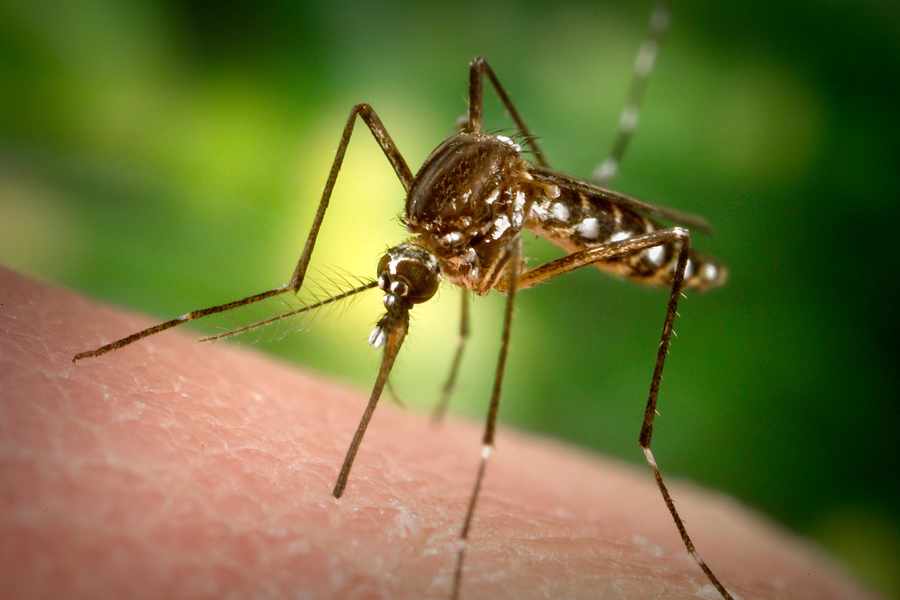
Yellow Fever
The mosquitoes that spread the infection are usually active and bite during daylight hours and are found in both urban and rural areas.
Symptoms develop three to six days after infection, and can include a high temperature, a headache, nausea or vomiting, muscle pain, including backache, loss of appetite, which tend to pass after four days with most people making a full recovery.
Around 15 per cent of people go on to develop more serious problems, including jaundice (yellowing of the skin and whites of the eyes), kidney failure and bleeding from the mouth, nose, eyes or stomach (causing blood in your vomit and stools). Up to half of those who experience these symptoms will die.
Dengue Fever:
The mosquitoes that spread dengue are rare in England, and cases that develop in the UK occur in travellers who picked up the infection overseas.
Yellow fever develops between three and six days after a person has been bitten by an infected mosquito. Symptoms include fever, headache, vomiting and muscle pain.
These symptoms usually pass after four days, with most people making a full recovery.
However, about 15 per cent of people go on to develop more serious problems, including kidney failure and bleeding from the mouth, nose, eyes or stomach.
Up to half of those who experience these symptoms die.
The news that the Asian tiger mosquito could reach Jersey comes after it emerged that the Asian hornet, which has a painful sting and is known to eat honey bees, was spreading north through France after being accidentally imported on a Chinese freight ship in 2004.
In 2011 Jersey’s Environment Department said that it was expecting the winged predator, which are strong fliers, to arrive in Jersey after it was spotted just south of St Malo.
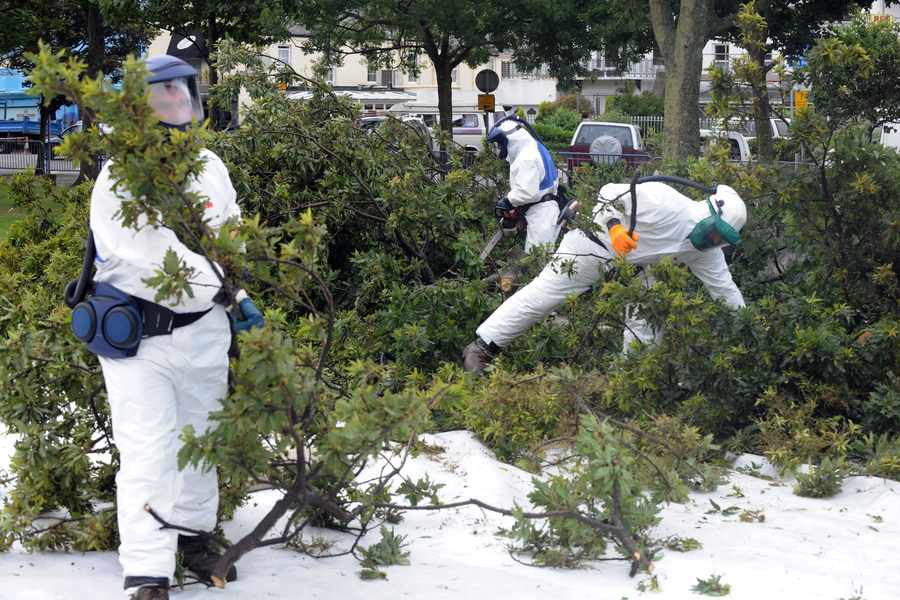
Oak processionary moth
A hazard to the health of humans and animals, the caterpillar of the oak processionary moth is the real problem.
The beasts have poisonous hairs that blow in the wind and cause respiratory problems, rashes, itching and eye irritation in both humans and animals. A native of central and southern Europe, their range is expanding and they have been found as far north as Sweden. They were first detected in Jersey a few years ago, with a large outbreak in St Helier in 2009.
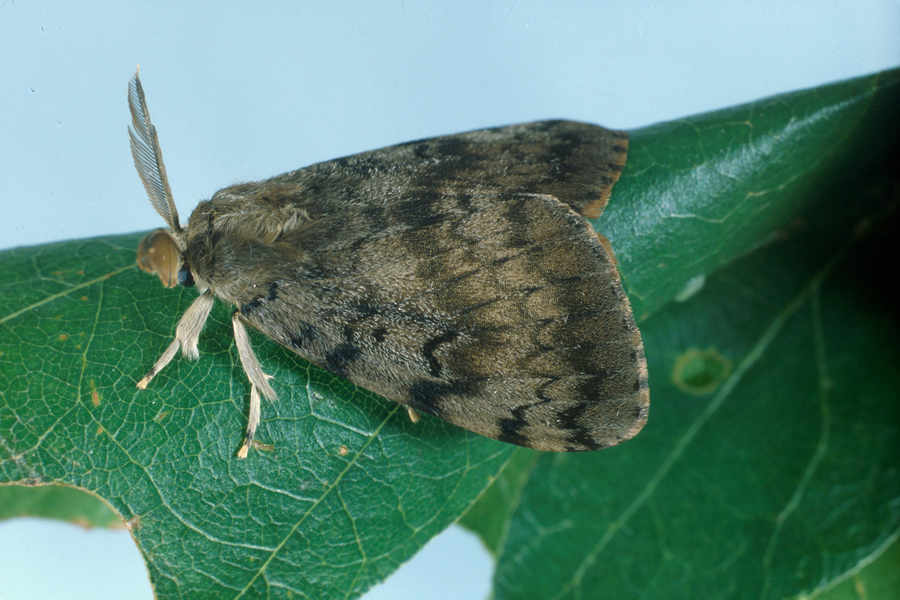
Gypsy moth
This ravenous creature eats so much, and so quickly, that any trees it fancies are stripped bare of leaves. If the moth, which is of Eurasian origin, is allowed to spread, it results in massive defoliation. First detected in Jersey in larval form in 2002, the numbers of gypsy moths rose rapidly in the following five years.
Concerted efforts to trap and destroy the moths – as opposed to using traditional insecticide use – were subsequently pioneered. This led to a sharp drop in the numbers in Jersey, although trapping in 2010 showed that a small population was still present
Colorado beetle
The black and yellow striped beetles are a potential menace to Jersey agriculture. As any potato farmer will know, they have a voracious appetite for potatoes and can wreak havoc on crops. They have arrived on our shores sporadically over the past few decades, windblown from France, and have taken more convenient modes of transport, believed to becoming by ferry.
Both in 2009 and 2010 a single live Colorado beetle was found in the Island.

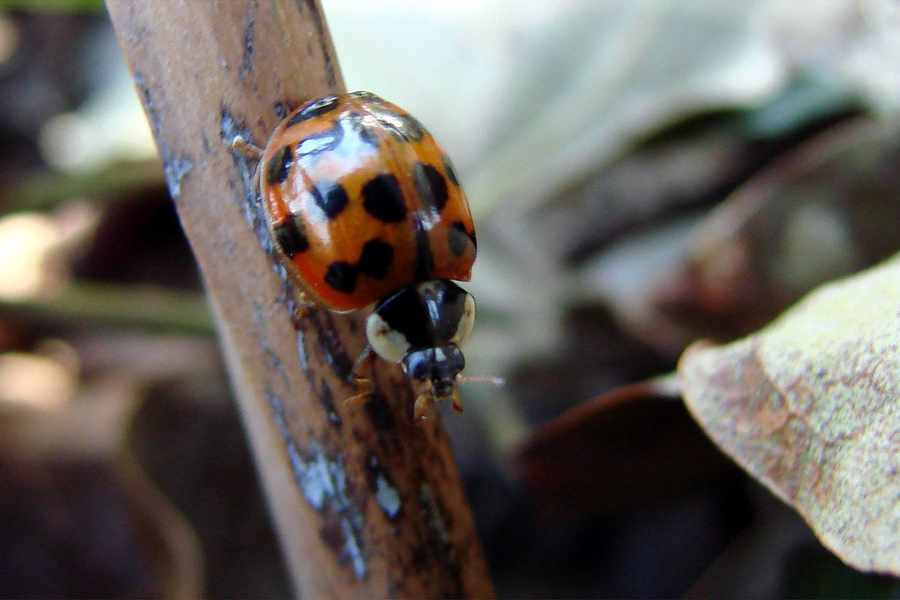
Harlequin ladybird
Another critter with a big appetite, the harlequin threatens native ladybirds.
The ladybirds, which are originally from east Asia, have the potential to kill off local ladybird species by devouring their food sources and taking over their habitat.
A Jersey resident first discovered one of the aphid predators in St Catherine’s Wood in 2007.

THERE are four strains of dengue fever, the tropical disease that afflicts millions of people each year.
Islander Andy Ferrari-Bradley managed to catch two of them within two weeks in Thailand in 2013, leaving him strapped to a drip with a temperature of 103 degrees and wondering how he was going to get home.
The 24-year-old fund administrator had undergone all of his shots for his 11-month trip across Asia and America, leaving him immune to malaria, hepatitis, typhoid and several others, but there is no vaccine for dengue fever.
In fact, Andy had barely heard of the disease before he was struck down with it in Bangkok just days after arriving from Jersey.
But while dengue fever is fairly common, catching two different strands within just a few weeks is very unlikely.
Not only that, the doubled-up effect of catching a second strain of the disease is very serious, potentially leading to dengue haemorrhagic fever, and it can have a dangerously debilitating effect on the body.
‘I’m just so glad that I had full insurance,’ Andy says, speaking several months after his ordeal.
‘I wasn’t really thinking about it before I left but my parents reminded me and I spent £500 to cover me for 11 months, visiting Thailand, Singapore, Bali, Australia, New Zealand, Fiji and America.
‘I had been made redundant in 2012 and thought I would use the money to go travelling, as every young person wants to do.’
Andy never made it past Thailand. He had spent a few days in Bangkok, recovering from jet lag, and was relaxing in his hotel (a luxury option for a few days) when he felt a few bites on his legs and arms.
‘I thought I would have one or two marks in the morning but I didn’t think too much about it and went to bed,’ he says.
‘I woke up at about 1 am to find out I was literally covered in mosquito bites. ‘I went down to the hotel concierge and he said straightaway “you’re going to hospital”. I got a taxi there and showed the nurse my bites, which she said were the most she had ever seen. They counted them and found I had about 240 but I still wasn’t feeling too bad so I wasn’t that worried.’
Armed with anti-histamine tablets, Andy spent the next day recovering and then booked an overnight train and ferry to Koh Tao, a small island near the western shore of the country.
Just before he left, he learned the results of some blood tests which showed that he had caught dengue fever.
‘The nurse said that the best thing to do was drink a lot of water and keep my fluids up to wash it through my system.
‘So I went down to Koh Tao on the train and got the boat.’
That was the last thing that Andy remembers before waking up in Koh Tao hospital.
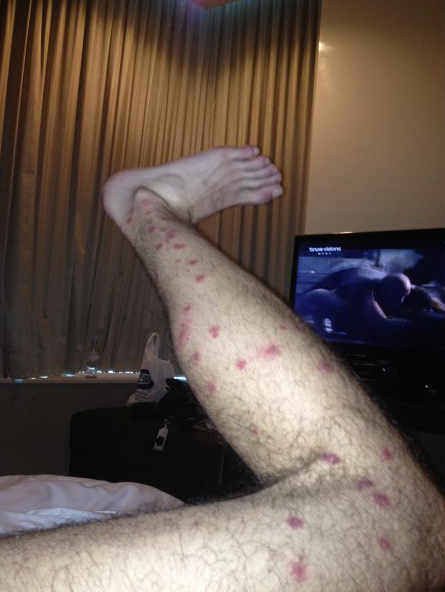
‘It did freak me out a bit, to be honest,’ he says. ‘And my parents. But the problem was I hadn’t taken in enough fluids or eaten enough so my body was exhausted and I just collapsed. It just drains you.’
It was decided that Andy would travel to Dubai to stay with some relatives and recover fully from the fever. After two weeks there, he flew back to Thailand to catch up with his friend, Hugo. They spent a few weeks exploring the country and visiting Koh Samui, Anong, Ton Sai and Koh Phi Phi.
Now very alert to the danger of mosquitoes, Andy had been liberally applying a 100 per cent deet insect repellent (which was so strong it burned away the skin on his fingertips) but on the last day in Koh Phi Phi, Andy suffered a solitary bite, just above his bottom.
‘My friend joked that it would be dengue fever again,’ he says. ‘We had a good laugh at that.’
But over the next couple of days Andy started to feel very tired and again lost his appetite. After sleeping for 17 hours one night, he was persuaded to go for a check-up at Phuket hospital, just in case.
The last thing Andy remembers this time was giving blood, before he woke up in a hospital bed surrounded by two doctors and five nurses.
‘By the time my blood tests came round and I found out I had dengue fever again, the doctors said they wanted to keep me in for the week,’ he says.
‘They explained that having two strands of the fever can cause hypo dengue fever, which can be fatal. My platelet levels were also very low because of it.
‘Luckily, because of my insurance, I was well looked after and they kept me in the ICU.
‘I was kept on a drip and made to drink a two-litre bottle of water every hour as they tried to keep my blood as liquid as possible to stop it from clotting. They also checked my vitals every half hour.’
After two days of drifting in and out of consciousness, Andy began to feel a bit better – though he was still exhausted from the experience. He spent the next four days in the hospital, which he says was an excellent facility, and when he left his weight, which had been just below 13 stone when he left Jersey, had dropped to ten stone.
Mentally and physically exhausted, Andy re-joined his friends and planned on resuming his travels.






